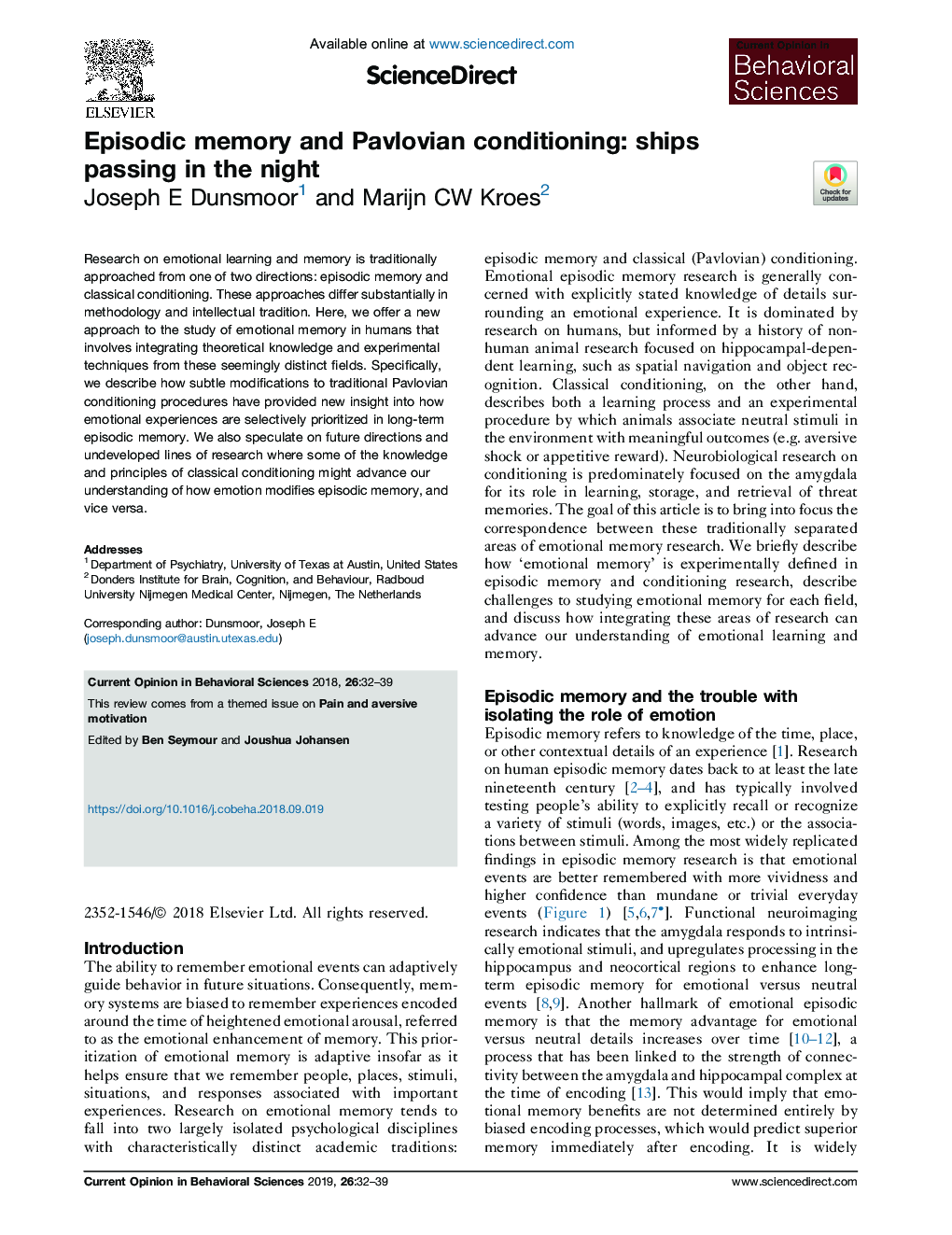| کد مقاله | کد نشریه | سال انتشار | مقاله انگلیسی | نسخه تمام متن |
|---|---|---|---|---|
| 11028725 | 1646741 | 2019 | 8 صفحه PDF | دانلود رایگان |
عنوان انگلیسی مقاله ISI
Episodic memory and Pavlovian conditioning: ships passing in the night
ترجمه فارسی عنوان
حافظه اپیزودیک و تهویه پاولویان: کشتی ها در شب عبور می کنند
دانلود مقاله + سفارش ترجمه
دانلود مقاله ISI انگلیسی
رایگان برای ایرانیان
ترجمه چکیده
تحقیق در مورد یادگیری عاطفی و حافظه به طور سنتی در یکی از دو جهت قرار دارد: حافظه اپیزودیک و تهویه کلاسیک. این رویکردها در روش شناسی و سنت فکری به طور قابل توجهی متفاوت است. در اینجا، ما یک روش جدید برای مطالعه حافظه عاطفی در انسان ارائه می دهیم که شامل ادغام دانش نظری و تکنیک های تجربی از این زمینه های ظاهرا متمایز است. به طور خاص، ما توصیف می کنیم که چگونه تغییرات ظریف در روش های تهیه سنتی پولوویان، بینش جدیدی را در مورد اینکه چگونه تجربیات احساسی به صورت انتخابی در حافظه اپیزودیک طولانی تر انتخاب می شوند، ارائه شده است. ما همچنین در مورد مسیرهای آینده و خطوط تحقیق توسعه یافته که برخی از دانش و اصول تهویه کلاسیک ممکن است ما را در درک اینکه چگونه احساسات حافظه اپیزودیک را تغییر می دهد و برعکس، پیشرفت می کند.
موضوعات مرتبط
علوم زیستی و بیوفناوری
علم عصب شناسی
علوم اعصاب رفتاری
چکیده انگلیسی
Research on emotional learning and memory is traditionally approached from one of two directions: episodic memory and classical conditioning. These approaches differ substantially in methodology and intellectual tradition. Here, we offer a new approach to the study of emotional memory in humans that involves integrating theoretical knowledge and experimental techniques from these seemingly distinct fields. Specifically, we describe how subtle modifications to traditional Pavlovian conditioning procedures have provided new insight into how emotional experiences are selectively prioritized in long-term episodic memory. We also speculate on future directions and undeveloped lines of research where some of the knowledge and principles of classical conditioning might advance our understanding of how emotion modifies episodic memory, and vice versa.
ناشر
Database: Elsevier - ScienceDirect (ساینس دایرکت)
Journal: Current Opinion in Behavioral Sciences - Volume 26, April 2019, Pages 32-39
Journal: Current Opinion in Behavioral Sciences - Volume 26, April 2019, Pages 32-39
نویسندگان
Joseph E Dunsmoor, Marijn CW Kroes,
